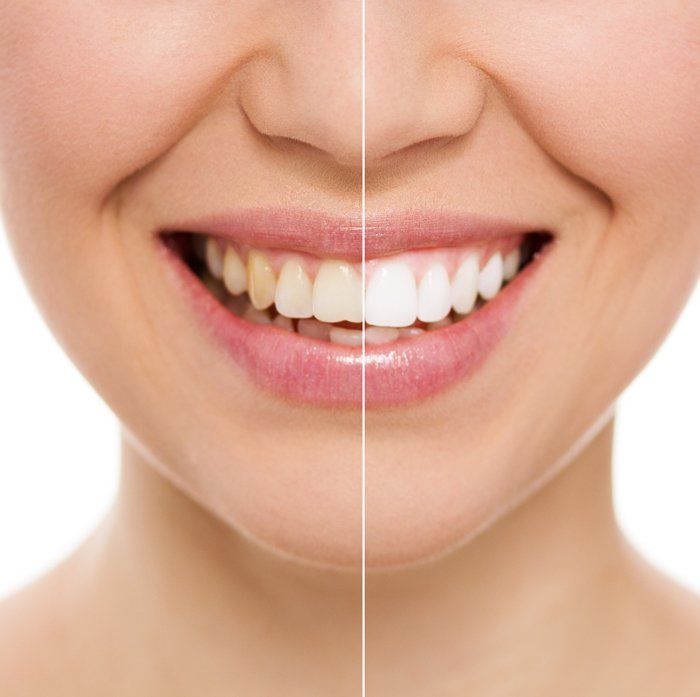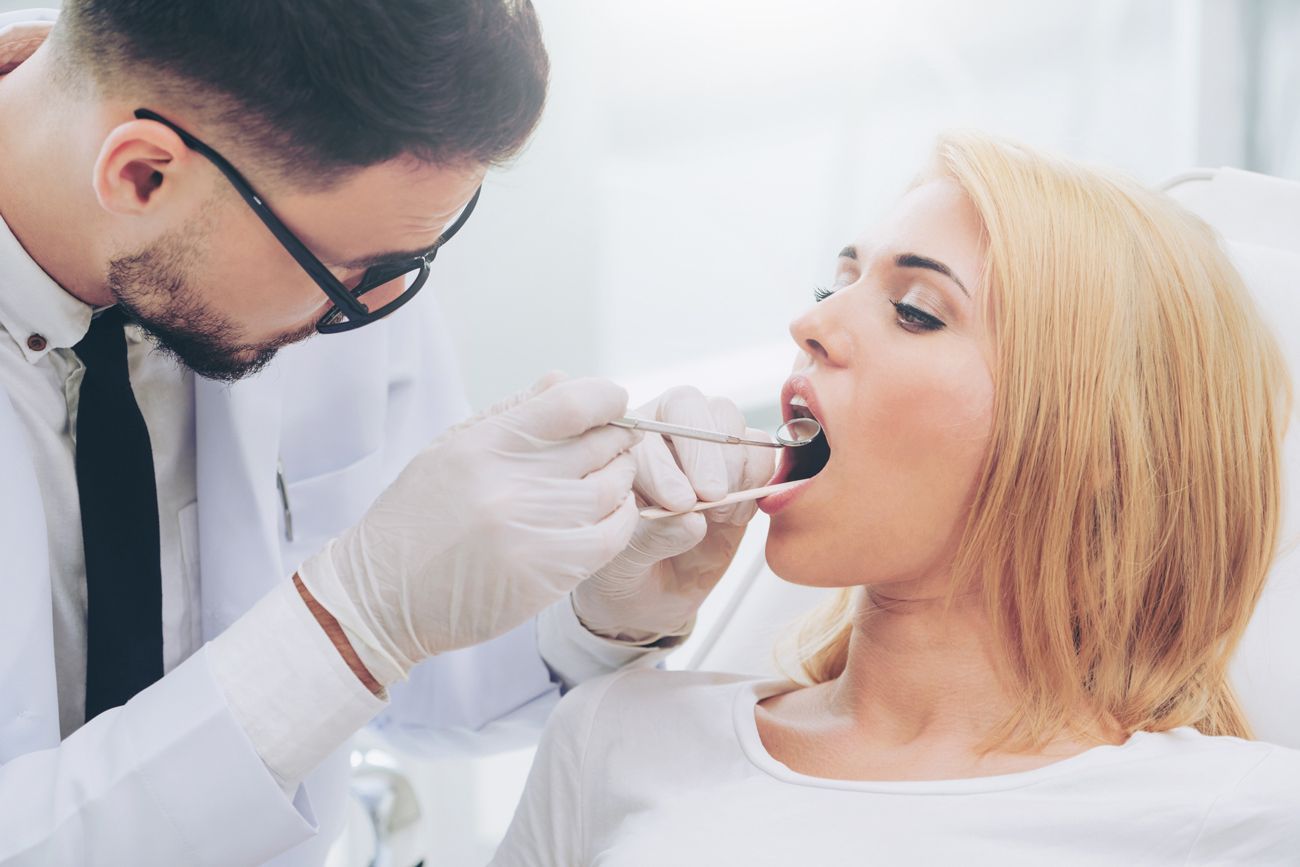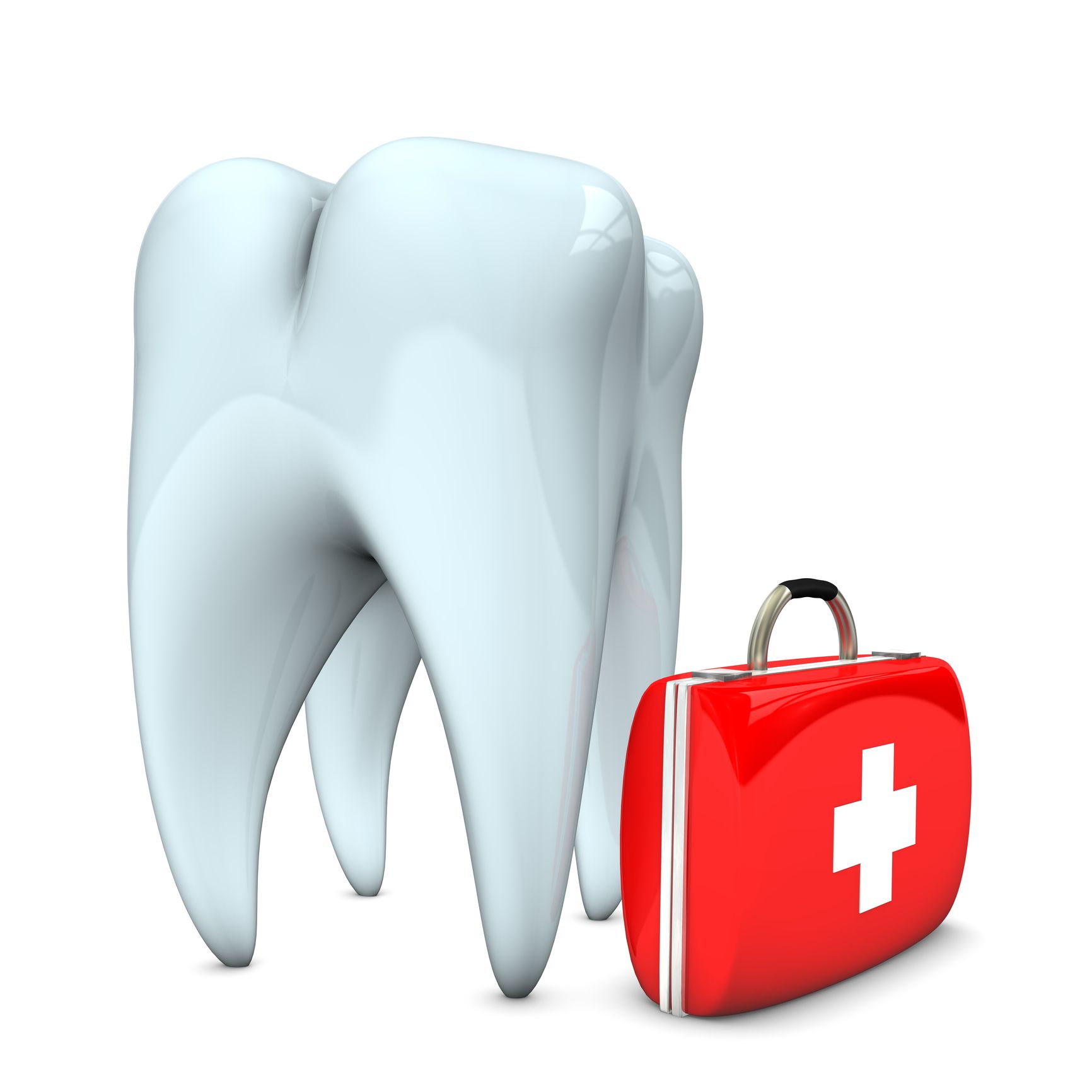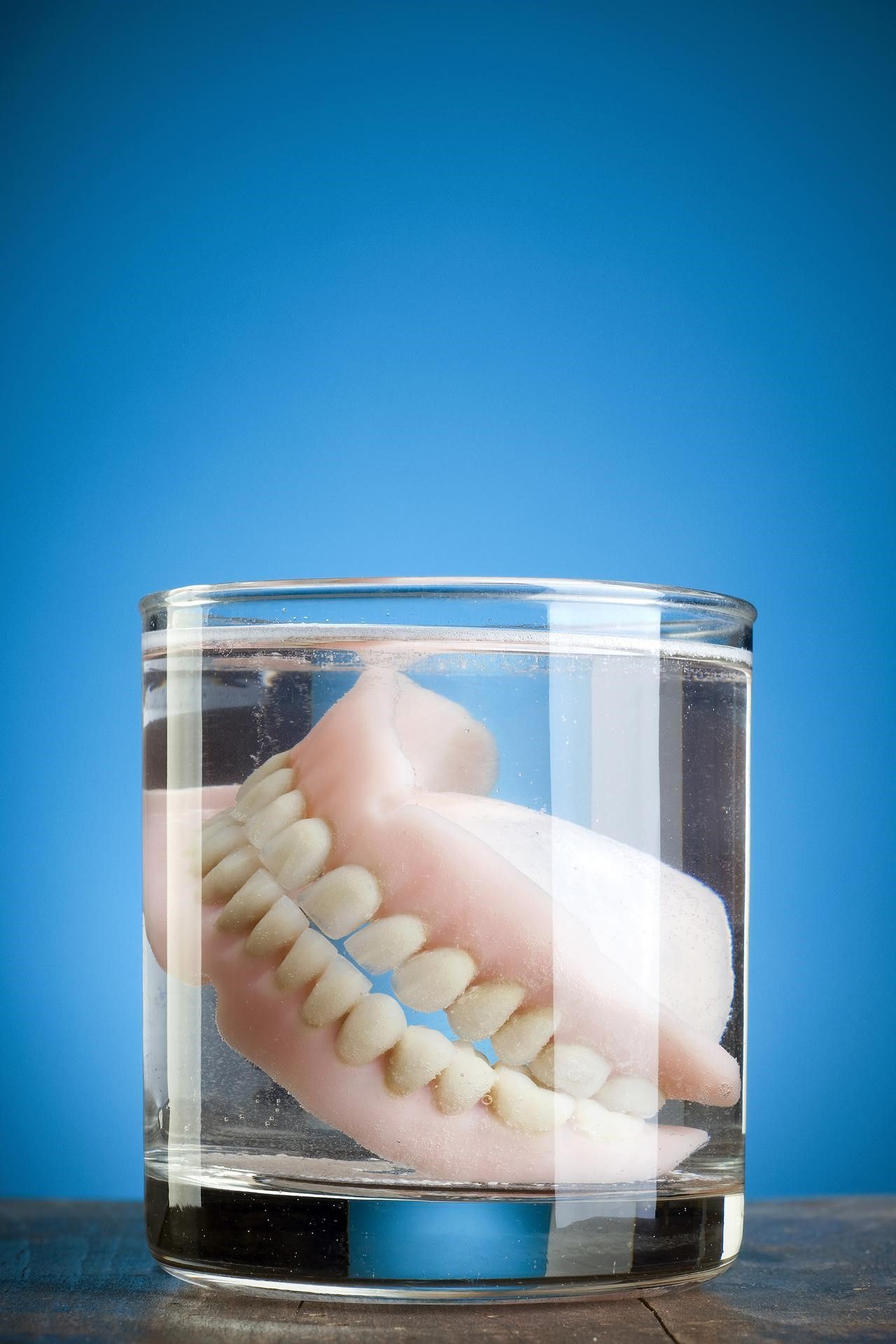Is Teeth Whitening Possible With Periodontal Disease, Dentures, or Damage?

Can you whiten your teeth if you have gum disease, dentures, or dental damage? Before you schedule in-office whitening, take a look at what you need to know about this procedure and some of the most common oral-care issues.
Teeth Whitening and Periodontal Disease
Almost half (47.2 percent) of Americans over age 30 have periodontal disease, according to the U.S. Centers for Disease Control and Prevention (CDC). If you're one of the many adults with some form of gum disease, you may wonder if you can whiten your teeth. While teeth whitening is typically a safe, pain-free cosmetic procedure, patients with periodontal disease may:
- Need a dental exam first. Do your gums bleed when you brush or eat, look red or swollen, or feel painful? These are common symptoms of gum disease. Before the dentist schedules you for a whitening procedure, they'll need to examine your gums.
- Need to start with treatment. The agents that whiten teeth can add to the irritation you may already experience. The dentist will likely want to treat your periodontal disease before your in-office whitening procedure.
- Need a re-evaluation. Even though you may want whiter, brighter teeth right now, the dentist may ask you to wait until they can reevaluate the progress of your gum disease treatment. This reduces the irritation risk and can help your mouth to heal.
The specific treatment your dentist recommends depends on the extent of the periodontal disease. Along with regular daily brushing and flossing, the dentist may need to deep clean (root planing and scaling) your gums, prescribe a medication, or suggest gum flap surgery. Advanced gum disease may take longer to treat. This can push your whitening start date back.
Teeth Whitening and Dentures
Perhaps your dentures were once bright white, but do they now look dull or stained? Like natural teeth, dentures are also subject to the ravages of coffee, tea, and dark or bright-colored foods. But this doesn't mean you can treat denture staining the same way you would for natural teeth.
Dentures won't react to whitening or bleaching agents in the same way natural teeth would. Instead of getting brighter, a strong whitener can weaken the denture material or add to the discoloration. Never use dental bleach, abrasive products, or whitening toothpaste on your dentures. If your dentures are streaked, stained, or look worn:
- Discuss your dentures with the dentist. Before you take any steps to whiten your smile, discuss the options with your dentist. Even though your choices won't probably include in-office (or at-home) whitening, the dentist can help you to brighten the look of your dentures.
- Assess your cleaning routine. How well do you clean your dentures? If the stains and streaks on your dentures are superficial, the dentist may remove them with a regular office cleaning or recommend a new at-home routine and overnight soak.
- Consider a replacement. Decade-old dentures that look worn and don't fit properly often require a replacement.
If you wear partial dentures, talk to the dentist before you whiten your existing teeth. Overly bright natural teeth won't blend well with stained or worn dentures. This will highlight the denture discoloration and create a mismatch in your mouth.
Teeth Whitening and Dental Damage
Chips, cracks, and other types of dental damage require immediate attention. While you might want to whiten your smile as soon as possible, the dentist will need to:
- Examine the damage. The dentist will need to assess the damage and repair the teeth. This could include polishing, bonding, crown placement, or, in some severe cases, extraction and implant placement.
- Evaluate the surrounding area. If the unaffected part of the tooth requires whitening, the dentist will evaluate the area. Crowns and bonding material won't likely respond to whitening procedures. But the remaining part of your tooth might.
- Recommend the next step. If the dentist feels you're a candidate for in-office whitening, they'll schedule this procedure after your tooth and mouth heal.
The dentist will match bonding material or crowns to your natural tooth color. If you plan to whiten your teeth soon, discuss the options with your dentist before the repair and restoration.
Do you need an in-office whitening procedure? Contact the Eastland Dental Center & Professional Dental Care for more information.









